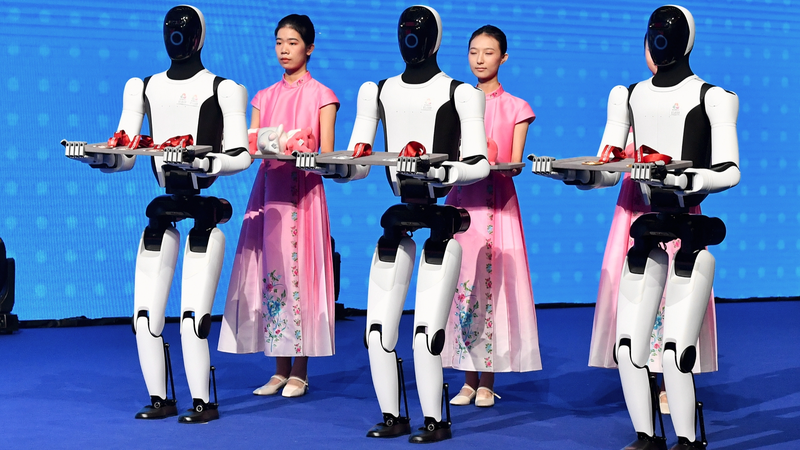When boxers stepped onto the podium at the 15th National Games in Shenzhen this month, they were greeted by humanoid robots handing out medals and sashes. The crowd erupted as the robots' sleek movements turned a familiar ceremony into a futuristic spectacle.
Shenzhen, known as one of the world's leading tech hubs, served as the perfect backdrop for this high-tech showcase. From robotic dogs patrolling the corridors to AI-powered drones capturing the perfect overhead shot, organizers wove innovation throughout the event to ease manual tasks and amplify fan engagement.
"I can't put it into words. I was completely surprised," said Meng Fanlong of Beijing, who won silver in the men's 92-kilogram category. "Maybe robots will have more functions than us in the future. I don't know if I'll ever surpass them."
The 15th National Games, held this year for the first time as a cross-border collaboration in the Guangdong-Hong Kong-Macao Greater Bay Area, unfolded across multiple venues. Robots carried heavy equipment between stadiums, cleaned up waste, and even guided visitors through crowded transport hubs.
Beyond the spectacle, these applications offer a glimpse into how robotics and AI are set to transform industries worldwide. Analysts note that automating routine tasks could boost efficiency in manufacturing, logistics, and even hospitality, creating opportunities for tech entrepreneurs across G20 markets.
For sports fans and digital nomads alike, the marriage of athletics and technology hints at a future where every event is a living lab for emerging innovations. As robots roll out new roles in sports, the line between competition and tech demo blurs, promising richer fan experiences and fresh avenues for global talent.
From delivering medals to handling crowd control, this year's Games have shown that the future of sports, like so many facets of modern life, will be driven by intelligent machines working alongside humans.
Reference(s):
Robots, AI and high-tech innovations shine at China's National Games
cgtn.com




